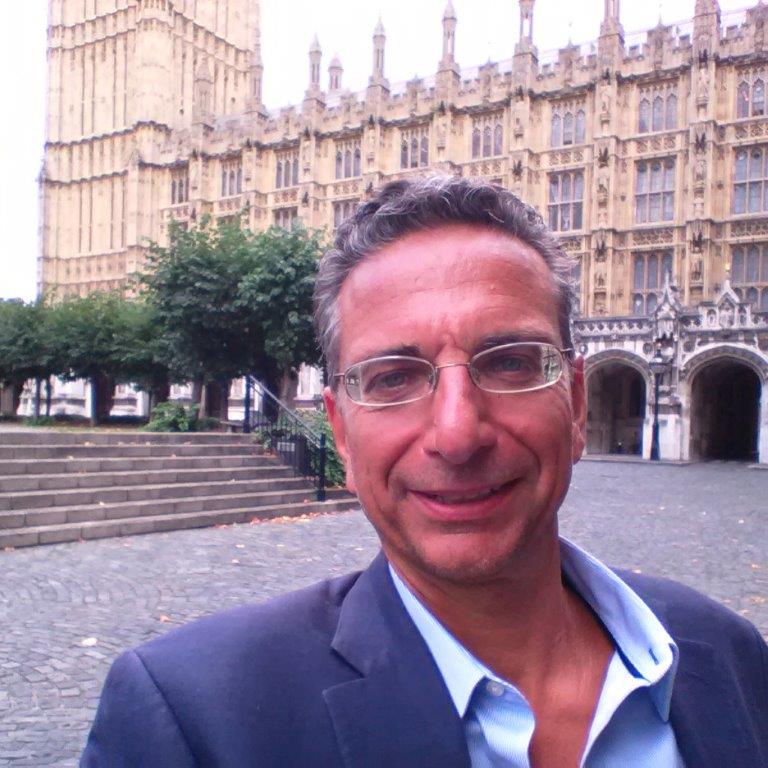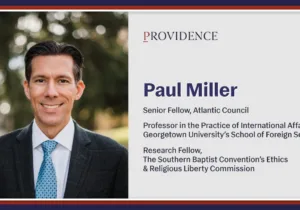Perhaps the best-known memoir of post-war disillusionment is the 1929 book Goodbye to All That. In it, poet Robert Graves laid bare the confusion, cynicism, and loss of innocence brought on by the mechanized slaughter of the First World War. “Pessimism made everyone superstitious,” Graves wrote, “and I found myself believing in signs of the most trivial nature.”
That’s a pretty apt description of the psychological mood of Barack Obama as he ends his eight-year presidency and prepares to deliver his farewell address to the nation.
The pessimism arrived early. Despite his flowery promises about “hope and change,” Obama entered office embodying the most ambivalent view of American power since the end of the Vietnam War, which ushered in a similar season of post-war gloom. His years in the White House served only to deepen an emotional retrenchment: a seemingly scornful view of U.S. engagement in the world which, not unlike the characters in Graves’s book, underwrote a superstitious belief in the power of rhetoric over action.
Russian aggression in Ukraine, the premature withdrawal of U.S. troops from Iraq, the astonishing rise and success of the Islamic State, and the ongoing human catastrophe of the Syrian civil war—each of these failures of American foreign policy can be traced, at least partially, to Obama’s facile belief that mere words can tame tyrants, protect the innocent, and bring peace.
The bankruptcy of Obama’s faith, his trust in empty diplomacy for its own sake, was most painfully exposed in the horror of Aleppo. The Syrian city, one of the last rebel holdouts against Bashar al Assad, was not defeated by the Syrian army. It was destroyed in a campaign of barbarism led and subsidized by Russia, Assad’s chief patron. While Obama intoned about the sin of becoming “bystanders to injustice,” the inhabitants of Aleppo were being ravaged by war crimes legitimized by a farcical “peace process” orchestrated by his Secretary of the State. Not even air assaults on hospitals and aid convoys could shake the president loose from his superstitions.
Thus, even Leon Wieseltier of the Brookings Institution, a longtime editor of the New Republic and a man of the left, concludes that Obama’s high-minded inaction has left America “weakened and disgraced” in the eyes of the world:
As a direct or indirect consequence of our refusal to respond forcefully to the Syrian crisis, we have beheld secular tyranny, religious tyranny, genocide, chemical warfare, barrel bombs and cluster bombs, the torture and murder of children, the displacement of 11 million people, the destabilization of Turkey, Lebanon and Jordan, the ascendancy of Iran in the region, the emergence of Russia as a global power, the diminishment of the American position in the world, the refugee crisis in Europe, the resurgence of fascism in Europe and a significant new threat to the security of the United States. It is amazing how much doing nothing can do, especially when it is we who do nothing.
No wonder Obama, in his final State of the Union address, in January 2016, did not breathe a single word about the Syrian refugee crisis—not a word, in a 6,100-word speech, about the worst humanitarian disaster since the end of the Second World War.
What could Obama possibly say now, in his farewell address, in light of these geo-political realities? What words of advice could he credibly offer the next commander in chief? What counsel from a president who, despite two terms in office, appears to have learned nothing about the indispensable role of American leadership in promoting peace and security?
The president’s speechwriters would be mystified by the words of Ronald Reagan, who also came to office during a time of American self-loathing. Reagan repudiated this mood in word and deed. Thus he could claim, with justification, that under his leadership there was a recovery of morale and moral purpose: “America is respected again in the world, and looked to for leadership.” Reagan ended his eight years in office with the same fierce attachment to American exceptionalism—America as “a shining city on a hill”—that had launched him into public life.
“And how stands the city on this winter night?” Reagan asked in January 1989. “She’s still a beacon, still a magnet for all who must have freedom, for all the Pilgrims from all the lost places who are hurtling through the darkness, toward home.”
Barack Obama entered politics devoid of this belief. Instead, he projected a posture of agnosticism—even cynicism—about America’s capacity to defend international norms of justice, democracy, and human rights. From the very beginning, Obama said goodbye to all that, and he governed accordingly. And, now, finally, we say goodbye to him, a goodbye that seems a long time coming.
—
Joseph Loconte is an associate professor of history at the King’s College in New York City and a senior editor at Providence. He is the author of the New York Times bestseller A Hobbit, a Wardrobe, and a Great War: How J.R.R. Tolkien and C.S. Lewis Rediscovered Faith, Friendship, and Heroism in the Cataclysm of 1914-1918.
Photo Credit: President Obama, Vice President Biden and National Security Advisor Rice listen to Secretary of State Kerry following a bilateral meeting with European Council President Donald Tusk in the Oval Office, March 9, 2015. Official White House Photo by Pete Souza.







 Live in the DC area? Sign-up for Providence's in-person events list!
Live in the DC area? Sign-up for Providence's in-person events list!